
Distance education, also called distance learning, is the education of students who may not always be physically present at a school. Traditionally, this usually involved correspondence courses wherein the student corresponded with the school via mail. Today, it involves online education. A distance learning program can be completely distance learning, or a combination of distance learning and traditional classroom instruction. Massive open online courses (MOOCs), offering large-scale interactive participation and open access through the World Wide Web or other network technologies, are recent educational modes in distance education. A number of other terms are used roughly synonymously with distance education.

John Dewey was an American philosopher, psychologist, and educational reformer whose ideas have been influential in education and social reform. He was one of the most prominent American scholars in the first half of the twentieth century.
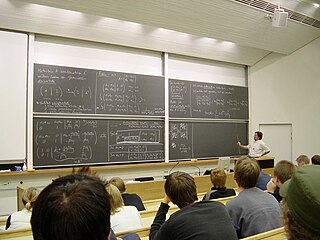
In contemporary education, mathematics education is the practice of teaching and learning mathematics, along with the associated scholarly research
Philosophy for Children, sometimes abbreviated to P4C, is a movement that aims to teach reasoning and argumentative skills to children. There are also related methods sometimes called "Philosophy for Young People" or "Philosophy for Kids". Often the hope is that this will be a key influential move towards a more democratic form of democracy. However, there is also a long tradition within higher education of developing alternative methods for teaching philosophy both in schools and colleges.

Carter Godwin Woodson was an American historian, author, journalist, and the founder of the Association for the Study of African American Life and History. He was one of the first scholars to study the history of the African diaspora, including African-American history. A founder of The Journal of Negro History in 1916, Woodson has been called the "father of black history". In February 1926 he launched the celebration of "Negro History Week", the precursor of Black History Month.

William Rainey Harper was an American academic leader, an accomplished semiticist, and Baptist clergyman. Harper helped to establish both the University of Chicago and Bradley University and served as the first president of both institutions.
The Graduate School of Education and Information Studies (GSE&IS) is one of the professional graduate schools at the University of California, Los Angeles. Located in Los Angeles, California, the school combines two distinguished departments whose research and doctoral training programs are committed to expanding the range of knowledge in education, information science, and associated disciplines. Established in 1881, the school is the oldest unit at UCLA, having been founded as a normal school prior to the establishment of the university. It was incorporated into the University of California in 1919. The school offers a wide variety of doctoral and master's degrees, including the M.A., M.Ed., M.L.I.S., Ed.D., and Ph.D., as well as professional certificates and credentials in education and information studies. It also hosts visiting scholars and a number of research centers, institutes, and programs.
The Historical Association is a membership organisation of historians and scholars founded in 1906 and based in London. Its goals are to support "the study and enjoyment of history at all levels by creating an environment that promotes lifelong learning and provides for the evolving needs of people who share an interest in history." The association's patron is Queen Elizabeth II. The Historical Association was incorporated by royal charter in 2006, its centenary year. Legally it is a charity registered in England. The plan for a national historical association came from a group school teachers. The formation was handled by university academics, especially Charles Firth, Albert Pollard, and Thomas Tout. At first it dealt chiefly with teaching problems. The membership was expanded to include laymen, and the association branched out into activities such as publication and research in local history.

Thomas Emil Homerin was an American scholar of religion. He was Professor of Religion in the Department of Religion & Classics at the University of Rochester until his death in 2020, where he taught courses on Islam, classical Arabic literature, mysticism, and Mt. Hope Cemetery in Rochester.
John I. Goodlad was an educational researcher and theorist who published influential models for renewing schools and teacher education. Goodlad's book, In Praise of Education (1997), defined education as a fundamental right in democratic societies, essential to developing individual and collective democratic intelligence. Goodlad designed and promoted several educational reform programs, and conducted major studies of educational change. Books he authored or co-authored include The Moral Dimensions of Teaching, Places Where Teachers Are Taught, Teachers for Our Nation's Schools, and Educational Renewal: Better Teachers, Better Schools.

Maria Tecla Artemisia Montessori was an Italian physician and educator best known for the philosophy of education that bears her name, and her writing on scientific pedagogy. At an early age, Montessori enrolled in classes at an all-boys technical school, with hopes of becoming an engineer. She soon had a change of heart and began medical school at the Sapienza University of Rome, where she graduated with honors in 1896. Her educational method is in use today in many public and private schools globally.
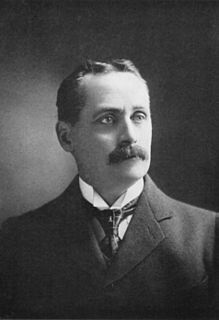
Wilbur Samuel Jackman was an American educator and one of the originators of the nature study movement. Shortly after he was born in Mechanicstown, Ohio, his family moved to California, Pennsylvania where he spent his boyhood growing up on a farm. It was his childhood experiences that engendered him with a love of the outdoors and all the plants and animals that live there.
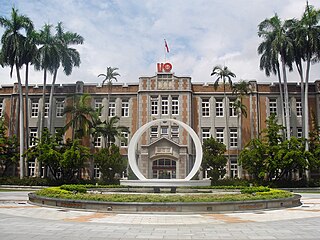
The National Taichung University of Education is a university in West District, Taichung, Taiwan. Founded in 1899 at the Confucian Temple in Changhwa county, it moved to the current site in 1923.
Krishna Kumar is an Indian intellectual and academician, noted for his writings in the sociology and history of education. His academic oeuvre has drawn on multiple sources, including the school curriculum as a means of social inquiry. His work is also notable for its critical engagement with modernity in a colonized society. His writings explore the patterns of conflict and interaction between forces of the vernacular and the state. As a teacher and bilingual writer, he has developed an aesthetic of pedagogy and knowledge that aspires to mitigate aggression and violence. In addition to his academic work, he writes essays and short stories in Hindi, and has also written for children. He has taught at the Central Institute of Education, University of Delhi, from 1981 to 2016. He was also the Dean and Head of the institution. From 2004 to 2010, he was Director of the National Council of Educational Research and Training (NCERT), an apex organization for curricular reforms in India. He was awarded the Padma Shri by the President of India in 2011.
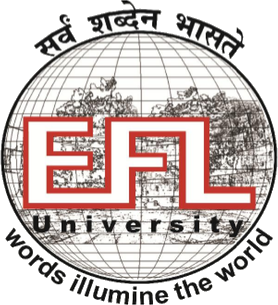
The English and Foreign Languages University known as EFLU is a university for English and foreign languages located in Hyderabad, India. It is the only such university dedicated to languages in South Asia.

Zonia Baber, born Mary Arizona Baber in Clark County, Illinois, was an American geographer and geologist best known for developing methods for teaching geography. Her teachings emphasized experiential learning through field work and experimentation.
Michael Thomas is an English university professor working primarily in the field of digital education in relation to social justice, the educational implications of disadvantage, online and distance education, digitally mediated communication and higher education policy. He is currently Professor of Education at Liverpool John Moores University and Chair of the Centre for Educational Research (CERES).
Zhu Zhixian was a psychologist, educator, and professor, known today as one of the founding figures of modern psychology in China. He graduated from National Central University, and then worked as a researcher in the University of Tokyo in Japan. During the Second Sino-Japanese War, he returned to China and worked in Jinagsu College of Education, Sichuan College of Education, Sun Yat-sen University and Dade College of Hong Kong. After the founding of the People's Republic of China, Zhu was responsible for the school textbooks in Ministry of Education, and then worked as associate editor in People's Education Press. In 1951, he was invited to work in Beijing Normal University. He was the chairman of Education Department, director of Institute of Child psychology, and editor of Journal of Psychological Development and Education. Zhu was one of the first doctoral tutors, and cultivated China's first doctor in psychology, Lin Chongde.
The School of Education (SOE) at American University is accredited by the Council for the Accreditation of Educator Preparation (CAEP) and by the Office of the State Superintendent of Education (OSSE). The school offers undegraduate, masters, and doctoral degrees, as well as a post-masters graduate certificate in "Anti-Racist Administration and School Leadership." The school also runs a Center For Postsecondary Readiness and Success which "concentrates its research, professional development opportunities, and knowledge dissemination on improving the postsecondary opportunities for students who are historically disenfranchised and underrepresented on college campuses", and an Institute for Innovation in Education, which "conducts educational and translational research and administers research-informed professional development initiatives to improve teaching and learning in Washington, DC and beyond."
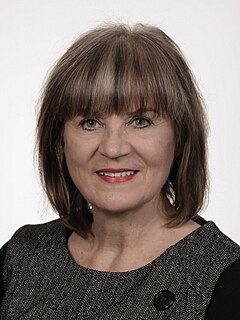
Svanborg Rannveig Jónsdóttir professor in arts and creative work in the School of Education at the University of Iceland.











